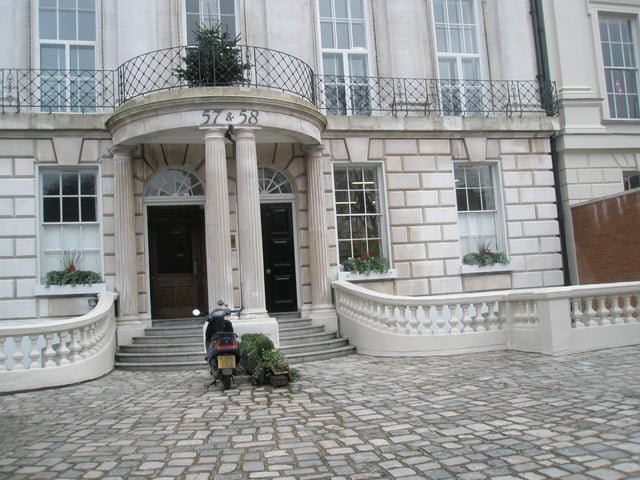The sort of arguments being thrown around online insisting on the right of businesses to engage in discrimination are disingenuous–and dangerous.
The Supreme Court of the United States delivered its ruling in Masterpiece Cakeshop vs. Colorado Civil Rights Commission, a case concerning issues of anti-gay discrimination and freedom of religion, and ruled in favour of the baker who refused to bake a cake for a gay couple for their wedding, citing religious reasons.
The case however, rests on a technicality – the Court only found that the CCRC had expressed hostility to the complainant’s religious beliefs and therefore overturned the decision. It thus left open the question of whether there could be a wider exemption for business owners to refuse service on the basis of religious beliefs, and has not necessarily legitimised such actions.

But I don’t wish to write about the judgment, which has been adequately covered elsewhere. What does cause alarm is the sort of arguments being thrown around in social networks and the blogosphere, with the current favourite being the insistence on the right of businesses to refuse service to whom they please. Their analogies follow typical patterns and they ask: Would one compel a Jewish baker to bake a cake with swastikas in the icing? A Muslim restaurateur to serve pork / bacon? Businesses, they argue, should be allowed to choose.
Hi Gavin. They weren’t denied a cake, they were denied a specific custom message. Should a Muslim baker have to bake a custom cake for an gay atheist wedding? Should a Jewish artist have to take commissions for a neo-Nazi? How about we let people make decisions for themselves? https://t.co/tO80YBq6Nk
— Dave Rubin (@RubinReport) June 4, 2018
This argument has been put forth, again, by YouTube commentator and self-appointed member of the Intellectual Dark Web Dave Rubin, who has frequently referenced his own identity as being gay in this discussion, presumably to imply that he would not hold views unfriendly to same-sex couples and has repeated his views that religious freedom should prevail, from his famous ‘coming out’ video for PragerU, on ‘Why he left the left’, to his response yesterday. Famous skeptic and another member of the IDW, Michael Shermer, has followed it up with a similar comparison.
On the other hand…skin-head neo-Nazi couple asking a Jewish baker to design a beautiful wedding cake with swastikas, SS logos, & little gas chambers would surely be in his rights to refuse their business, if not outright kick them out of the store. Dang. This is a hard one.
— Michael Shermer (@michaelshermer) June 4, 2018
Shermer and Rubin, and the crowds echoing this sentiment appear to understand the issue as a straightforward conflict between two rights, with the right to religious freedom having come out on top in this round. Uncomfortable with confronting the ramifications of this denudation of the right against discrimination, they refer to the right to a business owner to refuse service to justify the actual discrimination taking place. They refer to Neo-Nazis and swastikas, purposefully using reprehensible caricatures that the audience would feel compelled to justify refusing service to.

But the notion of anti-discrimination has deep roots in the principle of egalitarianism. As is well known, it is illegal to discriminate on the basis of certain traits, like race or sex, but not others, like experience or beauty, because the guarantee of equal protection, or anti-discrimination is most strongly present with respect to certain human traits that are immutable, meaning they were not chosen. Thus, the identities most definitively protected by the right against discrimination are immutable and unchangeable. In other words, you shouldn’t be punished for a characteristic or attribute that you have no control over.
“It is illegal to discriminate on the basis of certain traits, like race or sex…because the guarantee of equal protection, or anti-discrimination is most strongly present with respect to certain human traits that are immutable, meaning they were not chosen.”
Discrimination based on immutable or prohibitively unalterable characteristics like race and sex, and now, sexual orientation, is therefore much more conclusively outlawed. Indeed, the long drawn-out struggle for gay rights attained some measure of success only when society came to be convinced, on a scientific basis, that sexual orientation was not easily changeable, not a choice, and certainly not a deviance. In all of their examples, these commentators conveniently skip over this aspect of the right against discrimination and use criminals or those exercising ‘lifestyle choices’ in their examples.
Why do I stress this seemingly obvious notion? Because the idea that the world should not treat you badly or discriminate against you for characteristics and group identities that you are born into, and have little control or choice over, is the very source of our modern notion of human rights. We reserve the right to judge people for their choices, and their actions – never for the bodies and circumstances in which they were born. Non-discrimination on the basis of such characteristics is the core of human rights – it is its beating heart.
Comparing a group vilified and marginalized for their sexual orientation to those of a political or ideological leaning is either disingenuous, or quite simply fantastically ignorant. One is a choice. The other is not. The more enlightened version of equal protection from discrimination, as stated in international treaties has now become more expansive in scope, for a more robust defence of individual rights from the state, and covers groups bounded together by a political or social commonality as well. But the more expansive version only serves to remind us that even during a harsher, less generous time, when human society was less civilized, and vulnerable groups were more marginalized, the realization that one shouldn’t be made to suffer for an incident of birth was a significant moral and legal milestone, and spawned a whole generation of thinking on civil and political rights.
“Comparing a group vilified and marginalized for their sexual orientation to those of a political or ideological leaning is either disingenuous, or quite simply fantastically ignorant.”
Another argument that has been and is being blithely made by Rubin et al is that the gay couple in question could simply approach another shop, and that market forces would ensure appropriate censure of homophobia. Couples who insist on being treated equally and have sought legal recourse have been demonized for ‘attacking’ law-abiding small business owners, whose deeply held religious beliefs were being infringed upon. Those arguing the above entirely fail to realise the mechanics of oppression.

It wasn’t that long ago that entire communities, towns and cities held similar beliefs. It wasn’t too long ago that a business discriminating against a gay couple could very well result in the latter being homeless, penniless, and without access to essential goods. It may sound dramatic, but it’s not. Social disapproval gains steam quickly and mercilessly, and it takes but one expression of revulsion for tides to change overnight. It may be easy to trust ‘market forces’ to signal consequences to the baker or businessman in question, but more frequently market forces may well endorse and support such stances. The proponents of this view would do well to remember that just a few decades ago, this would have been reality for homosexual individuals and in much of the world still is. To treat it lightly or to simply ‘leave it to people to make their own decisions’, irrespective of the impact on human rights is to do the long hard struggle for LGBT rights a grievous injustice. It is not always easy to stack up civil rights against each other, but as far as non-discrimination goes, there is a clear winner. The right to non-discrimination, so fundamental to the dignity and humanity of human beings, is infinitely more important than the right of a business owner to refuse service.
“It wasn’t that long ago that entire communities, towns and cities held similar beliefs. It wasn’t too long ago that a business discriminating against a gay couple could very well result in the latter being homeless, penniless, and without access to essential goods.”
Rights don’t exist in a vacuum, and are always suspended in a delicate balance with the rights of others. Walking this tightrope is not always easy, but at its root is the acknowledgment that no one deserves punishment for being who they are with little choice or control. Allowing discrimination – even under the guise of another’s freedom – on the basis of religious beliefs defeats that very purpose. Perhaps that is why SCOTUS refrained from making such a conclusion.






Article Discussion